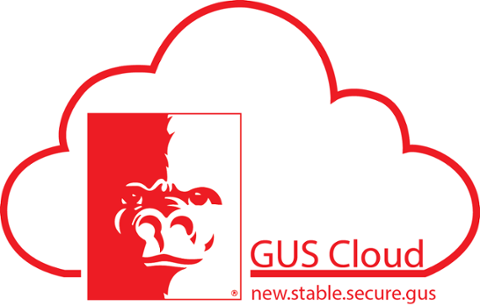
GUS Cloud FAQs
Why did we need to move from GUS classic to something new?
Our current system has served us well for 30+ years, but it’s time for a system that is industry standard and flexible to be successful in today’s changing IT environment. PSU’s current ERP system (GUS classic ) is 30+ years old. It was created in circa 1984, and has been modified numerous times throughout the years. As you might imagine, this 30+ year old system is beginning to show its age. The software is no longer supported and the hardware is no longer being produced.
How will I know what is going on with the project?
A marketing plan for the GUS Cloud Project is in place and has numerous avenues of communication in place throughout the life of the project. This communication will take place through many avenues, including this web page, the HRS project web page newsletter articles, campus meetings, press releases, social media status updates, and university email.
What will happen to GUS classic?
GUS classic will continue to serve as the ERP system for the Student Information System at this time.
What is an ERP?
ERP is an acronym that stands for Enterprise Resource Planning (ERP). An ERP system is the core electronic system of any institution. It allows us to integrate internal and external information in a single, easy-to-use system. ERP systems in higher education might include records and data for students (grades, credit hours, financial assistance, etc.), finance (expenditures/payables, receipts/receivables, etc.), employees (pay stubs, benefit statements, etc.) and human resource services (employee reviews, appointments, etc.). PSU's core ERP system is commonly known, or referred to, as “IBM” or “Secure Shell.” Users can also access ERP data through the GUS system. Everything you see in GUS is actually residing in our ERP system.
What is the status of the ERP?
After an extensive search process involving over 70 campus stakeholders, the decision was made to purchase Oracle Cloud solutions. We are now moving forward with the implementation of Oracle Cloud to replace our finance, human resource and budget systems.
Why call it the Oracle Cloud Project? Why not continue to call it ERP?
It is important to start using the same language as Oracle Cloud. Oracle Cloud calls the solution that will replace PSU’s finance system “ERP.” Oracle calls the solution that will replace our core human resources system “Human Capital Management (HCM). Taleo/Talent is the name for Oracle’s solution that will replace the electronic appointment process. Hyperion/Planning & Budget Cloud Solution (PBCS) is the name for Oracle’s solution that will replace the university’s budget system.
What will we call the Oracle solutions?
We will call Oracle’s ERP solutions GUS Finance and GUS Procurement. Oracle’s HCM solution will be called GUS HR. We will call the Taleo/Talent solution GUS Recruit. GUS Budget will be the name for Hyperion/PBCS.
What changes will faculty/staff notice? How will this impact me?
Every PSU employee, including graduate assistants and student employees, will be affected by this project. The impact on each individual will depend on how they interact with the current system. Not only will individuals access information differently, but business processes will also change.
When will the full system be in place? What are the timelines?
GUS Finance and GUS Procurement is scheduled to go-live with the new fiscal year on July 1, 2016. GUS HR is scheduled to go live in January, 2017. GUS Talent and GUS Budget are scheduled to go live starting in spring 2017.
Can I get involved?
There will be many opportunities to get involved in the Oracle Cloud Project. Those serving as Department and Campus Stakeholders may be requested to perform testing as will others in specific job functions closely related to critical system components. If you are interested in getting involved in the Oracle Cloud Project please don't hesitate to use the form on this page.
Will there be training available?
Yes. All employees directly involved with using the Oracle Cloud will be offered hands on training.